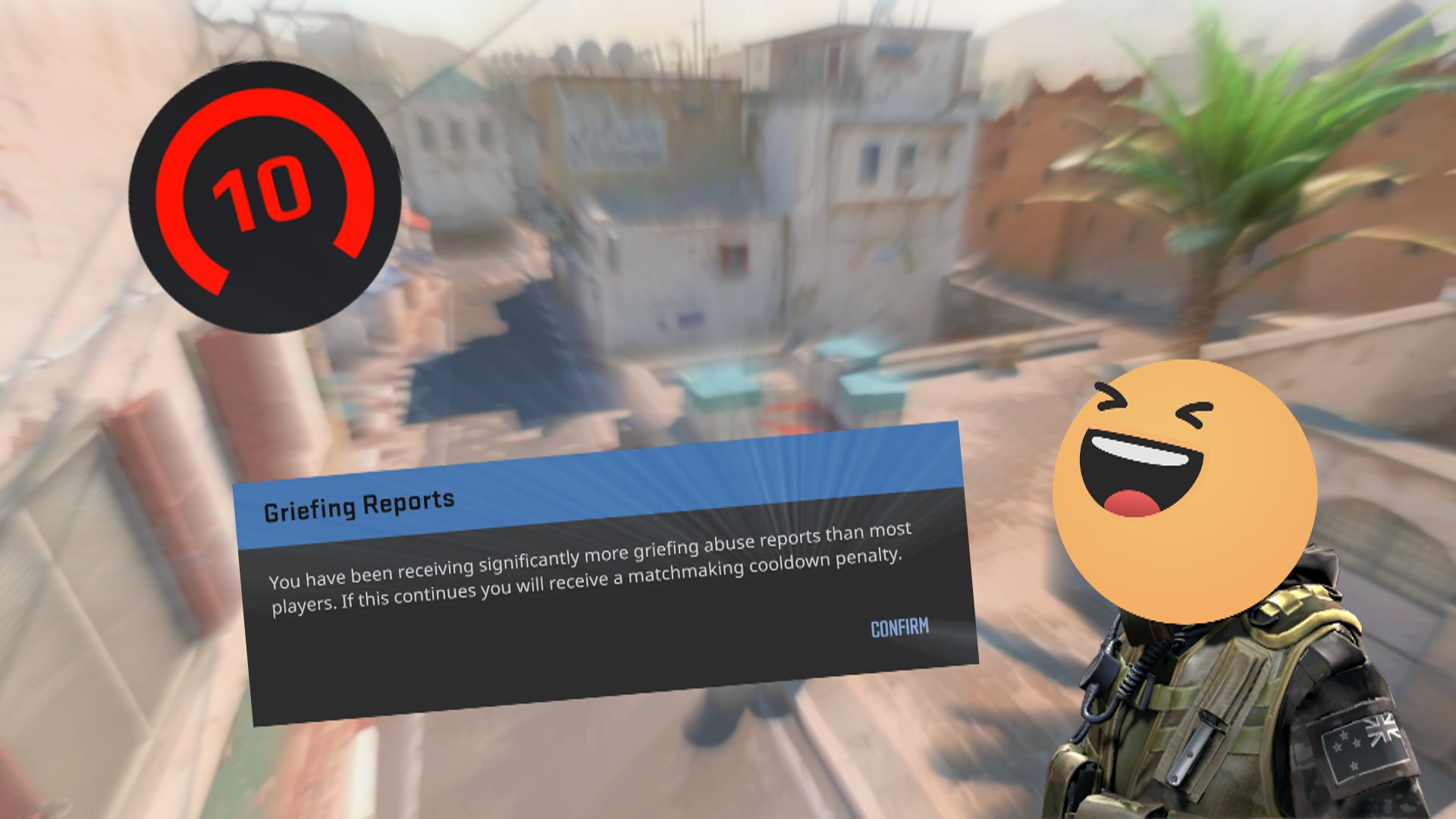Canal Mail Corp: Your Hub for Daily Insights
Explore the latest news, tips, and trends across various topics.
Griefing Penalties in CS2: The Karma You Didn't See Coming
Discover the unexpected consequences of griefing in CS2! Uncover the karma that could change your game forever. Don't miss out!
Understanding CS2 Griefing Penalties: How They Impact Your Gameplay
In the ever-evolving landscape of CS2, understanding the nuances of griefing penalties is crucial for maintaining a positive gameplay experience. Griefing—defined as actions that intentionally harm teammates or disrupt the game—can lead to serious consequences for players. The CS2 penalty system is designed to identify and reprimand these disruptive behaviors, which can ultimately impact your account status, matchmaking eligibility, and the overall integrity of the game. Knowing how these penalties are enforced can help players avoid actions that might lead to their accounts being flagged or banned.
Moreover, the impact of these CS2 griefing penalties extends beyond personal consequences; it affects team dynamics and the competitive environment as well. When players engage in griefing, it not only diminishes their own experience but also disrupts the enjoyment of others. Here are a few key points to consider:
- Frequent offenders may find themselves in lower-tier matches, facing penalties that restrict their gameplay options.
- Understanding the types of griefing—such as team killing, sabotaging objectives, or using glitches—can help improve player awareness.
- Positive player behavior is rewarded within the CS2 ecosystem, enhancing the community for everyone.
By adhering to the rules and fostering a respectful environment, players can avoid these griefing penalties and enjoy a much smoother gaming experience.

Counter-Strike is a highly competitive first-person shooter that has captivated gamers for years. The latest installment, known as CS2, offers enhanced graphics and gameplay mechanics that take the franchise to new heights. Players can engage in thrilling matches while exploring various maps and strategies. For those interested in accessing new content and updates, check out the CS2-Falleröffnungsseite.
The Hidden Consequences of Griefing in CS2: What You Need to Know
The Hidden Consequences of Griefing in CS2 extend beyond the immediate frustrations players experience during a match. Griefing, which can involve actions like team killing, sabotaging objectives, or otherwise undermining teammates, creates a toxic atmosphere that can discourage new players from continuing to engage with the game. This ongoing cycle can lead to decreased player retention, a shrinking community, and ultimately, a less enjoyable gaming experience for everyone. It’s vital to understand that while griefers may find temporary amusement in their actions, the long-term effects can be damaging to the overall health of the player base.
Moreover, the impact of griefing often leads to serious repercussions at the competitive level. Teams that contain players who engage in griefing may find themselves facing penalties, such as bans or loss of ranking, which can affect their standing in tournaments and ladders. Competitive integrity is paramount in any esports scene, and ensuring fair play is crucial for maintaining a vibrant community. Therefore, it’s essential for players to be aware of their actions and how they contribute to the broader gaming environment, aiming to foster a positive and respectful atmosphere within CS2.
Is Griefing Worth the Risk? Exploring the Karma System in CS2
Griefing in CS2 (Counter-Strike 2) has become a contentious topic among players, with many questioning whether the potential rewards outweigh the risks. While some players may find temporary amusement in sabotaging their teammates or manipulating game mechanics to gain an advantage, the implementation of the Karma System serves as a significant deterrent. This system evaluates player behavior and influences matchmaking, potentially punishing those who engage in griefing with lower rankings and reduced matchmaking opportunities. Consequently, individuals must consider the long-term implications of their actions on not only their standing but also on the enjoyment of the game for others.
Moreover, the Karma System introduces a community-driven aspect that encourages positive play. Players are rewarded for teamwork and fair gameplay while facing penalties for actions deemed detrimental to the game experience. This aspect of CS2 promotes a healthier gaming environment, fostering cooperation and strategic thinking instead of destructive behaviors. In essence, while griefing may offer a fleeting thrill, the potential for negative repercussions within the evolving Karma System necessitates a critical evaluation of whether such actions are truly worth the risk.